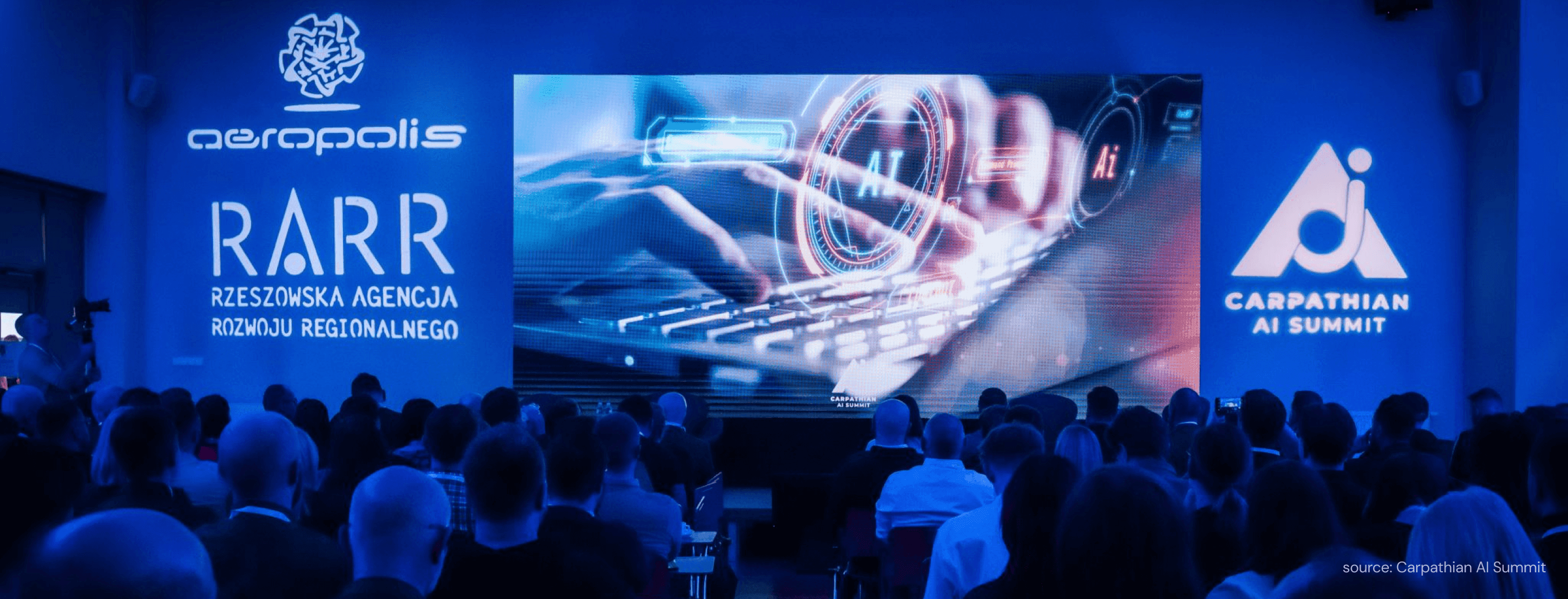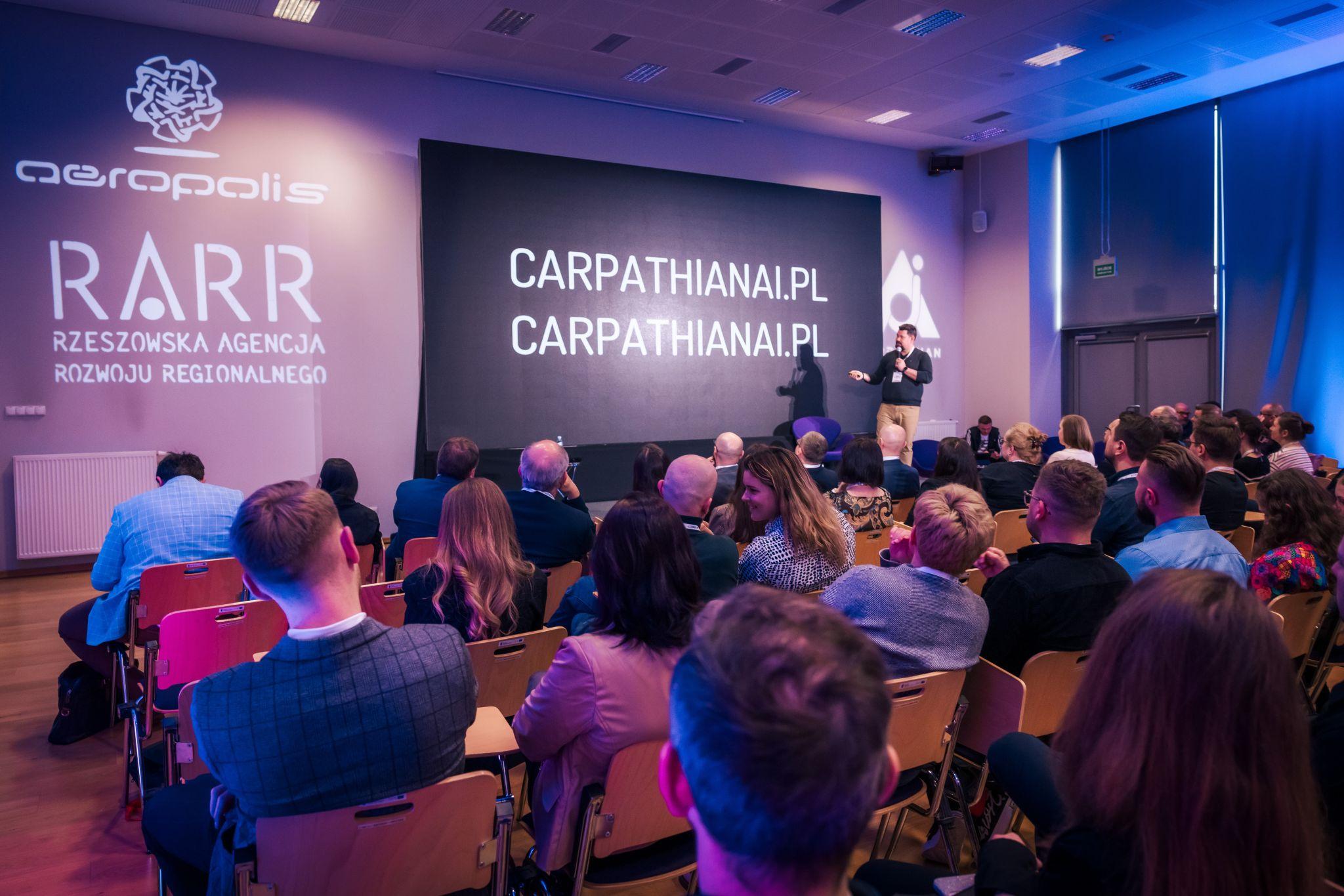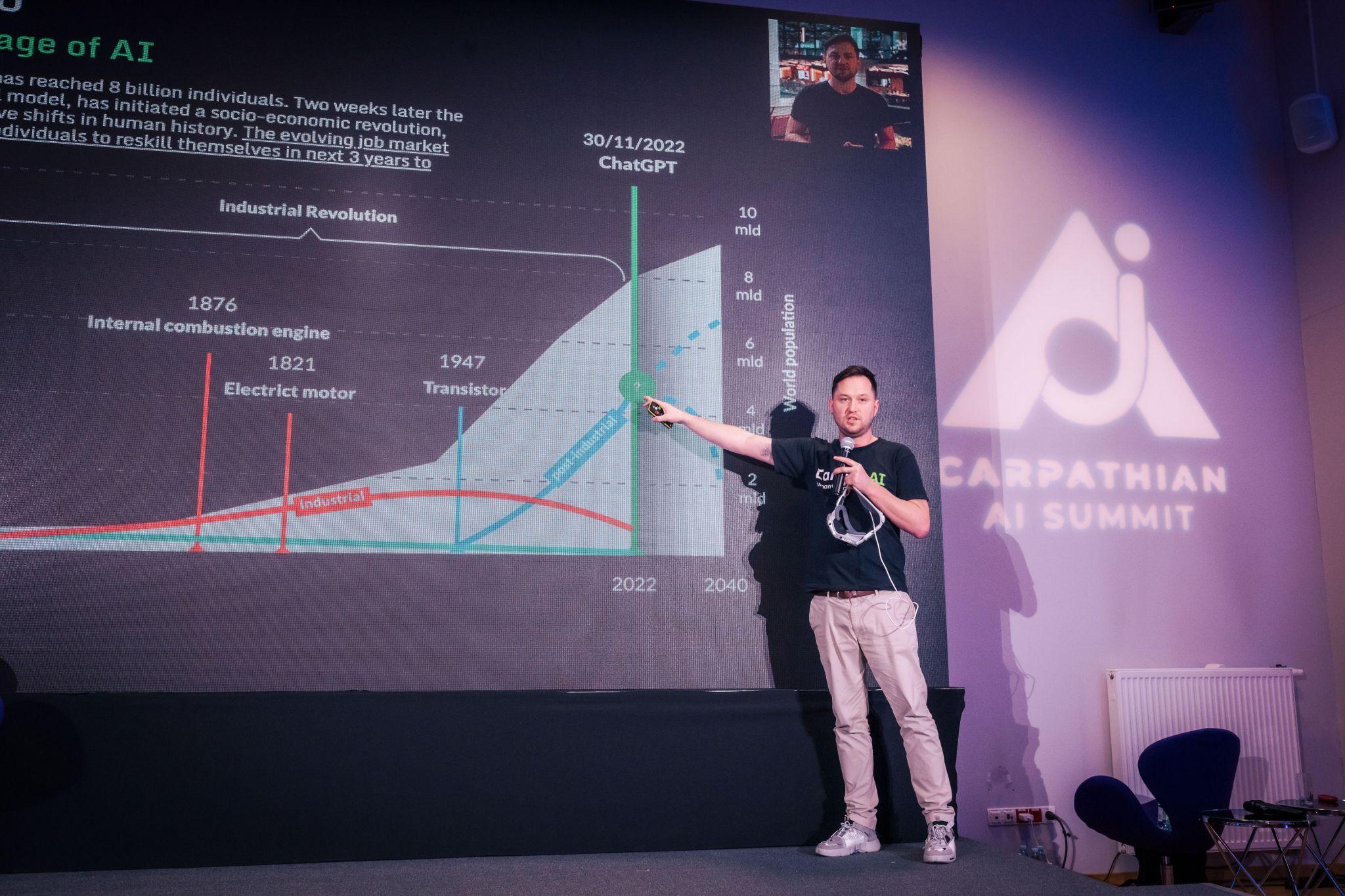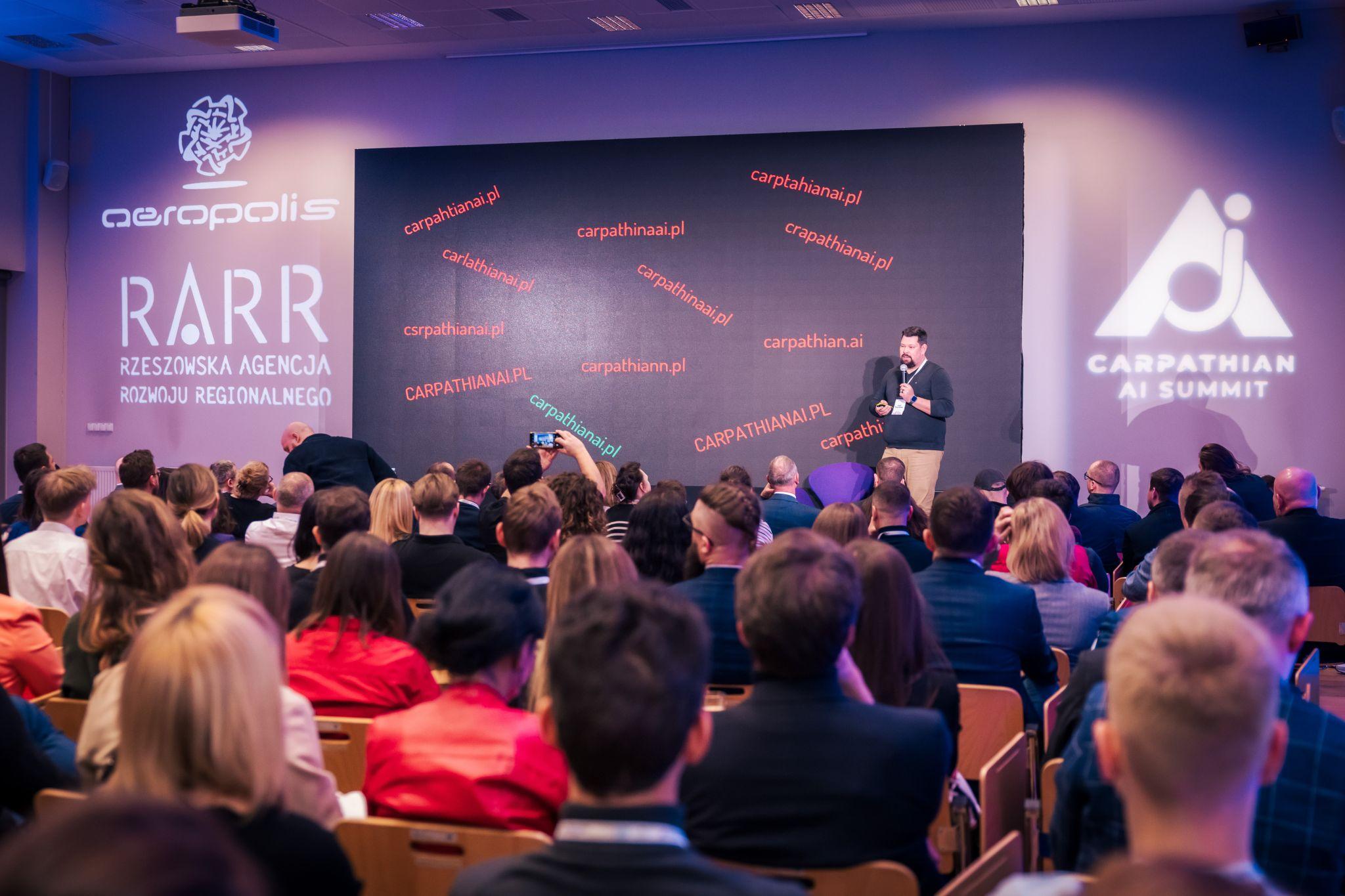Here are reflections on the Carpathian AI Summit from a software engineer interested in novel AI applications.
Author: Piotr Najda

Date added: 2024-05-21
7 min reading

The Dawn of a New AI Age
Just over a year has passed since the birth of ChatGPT, and what a time it has been.
Some 4000 years ago, the ancient game of Go was born in China. 6 years ago, Go’s 18 -time World Champion, Lee Sedol, was crushed 4-1 in a best of five match by Google’s DeepMind AlphaGo. This year, AlphaGeometry achieved the level of a gold medalist at the level of International Mathematical Olympiad. Midjourney V6 dazzles with photorealistic, beautiful portraits, Open AI’s Sora stuns with its video generation capabilities, accompanied by Polish ElevenLab’s soundscapes. Growth, from a marathon, has once again exploded into a sprint, and those who decide not to run will lose. A new age of AI is dawning upon us, and while the use of AI for modern businesses is not a success guarantee, not using it is a guarantee of failure.
This revolution, according to Andrzej Dragan, a theoretical physicist and one of the speakers at Carpathian AI Summit, will have a larger reach than anything else that has happened to us, ever, even the conception of fire. He underlines that while the distant future is hard to predict, and anyone proclaiming that they know what’s going to happen is naive, by we have to observe the trends and extrapolate: and today, we stand not by an exponential growth curve, or a chain reaction that started just over a year ago – we stand in front of a vertical wall of growth. A year ago, would you have imagined today?
Just as physicists facing a whole universe, we must know just how much we don’t know. Jeff Bezos underlines that leaders, who are often right, listen a lot, and have their minds open to analysis and change of deeply rooted beliefs through new data.
This new dawn is a chance for everyone: startups, corporations, companies with many years of experience on the market. Hidden within their databases, businesses often hold power that’s waiting to be unlocked. What often stands in the way is their inability to manage and digitalize data. Mariusz Pitura, co-founder of pogaduszki.pl, “platform for diagnosis and therapy of speech in children,” a well-established field, used the current revolution to massively simplify the app’s processes. Through data and AI we can see things that we otherwise would have missed with our own bare eyes. Just like in football, where we can’t focus on two penalty boxes at once, with AI and data, we can.
Embracing Responsible Integration
Just like with any other new technology, Integration of new uses of AI can be detrimental if not done right. How should we responsibly integrate AI? With a certain measured restraint. Many companies that decide to not lose, that is, start in the AI sprint, start barefoot: “we have to do something with AI!”. So they start. By choosing a tool first, and then a problem, and so they end up digging themselves a hole in the wall, with a spoon. The customer value recedes into the background. “Not everything that shines is gold.” AI may have changed many things, but it didn’t change that the client always comes first. Starting with a problem instead of the tools, we have a chance to better pick our tools from the get-go. Some of these tools in AI will turn out to be battle-tested and supported by dozens of scientific articles, which exactly outline the input data, the process and results, and by doing so, allow us to create value by effective replication of results. After all, it’s best to learn on other’s mistakes, not our own.
We can implement AI step by step, not in every process at once, especially in an already existing product. We can start small, by boosting software developers performance by granting them access to tools like Github Copilot. Bartek Pucek, an entrepreneur and angel investor in the Polish Eleven Labs, outlines three types of companies:
- Companies which don’t have anything to do with AI,
- Companies which nest/embed an AI product into their current product (AI Embedded),
- Companies, where AI is the native product (AI Native).
Bartek mentions that In the case of building products and conducting experiments at the new AI frontiers, we have an opportunity to build our vision at the limit, where instead of a manual, an abyss of trial and error awaits. To build at the limit, we need optimism, resilience and experience in building – the very experience that will contain our failures.
A focused and trained AI can do one thing very well. In more expansive problems, we risk hallucinations (false or dreamed up information). To minimize risk, AI can serve us as a work companion, which we can oversee and regulate. In smallhelp, executing simple decisions and integration in repeating processes, AI could even act on its own without much risk. With the advent of large open source models, and also the fact that OpenAI doesn’t train their models on data called through their API, our sensitive customer data is safe.
Intelligence and Creativity
In film schools in the USA, lecturers teach screenwriting students a very precise blueprint for writing scripts, so that films can achieve financial success. Breaking out of these well-treaded paths doesn’t work well, and we as people, have learned that empirically. ChatGPT did too. ChatGPT is not a set of data or a database: it learns about the world and discovers rules governing worldly phenomena. It’s effective and practical in applying this empirical knowledge, and often surpasses us in creativity: how many use cases for a broomstick can you find, and how many can ChatGPT?
In conversation about artificial intelligence, it’s important to define intelligence. Through guidance of Andrzej Dragan at the Carpathian AI Summit, we considered it as the ability to observe analogies: out of preschool, we carried certain abilities out of it, and further adapted to the environment. This ability to adapt to the environment is a specific mechanism, through which we are effective, and through which intelligence can be described.
An Unstoppable Revolution
With the current pace of growth, perhaps soon AI will “spit out” readymade programs. Daniel Kędzierski, a marketing expert and entrepreneur, spoke about the importance of building a web of products and social products: looking at the giants like Mark Zuckerberg, Elon Musk or Sam Altman, all of them are building products, which are co-created by the customers: X, Metaverse, Worldcoin. It’s also worth noting that through current trends in AI, customer awareness and knowledge will also increase.
Some years ago, driving somewhere far away, you’d use a map or an atlas. These days, we have the GPS that most of us take for granted. Even if you like getting lost on a weekend road trip with your family you can’t deny the ubiquity of the GPS: and so it is with AI. This revolution cannot be stopped.








